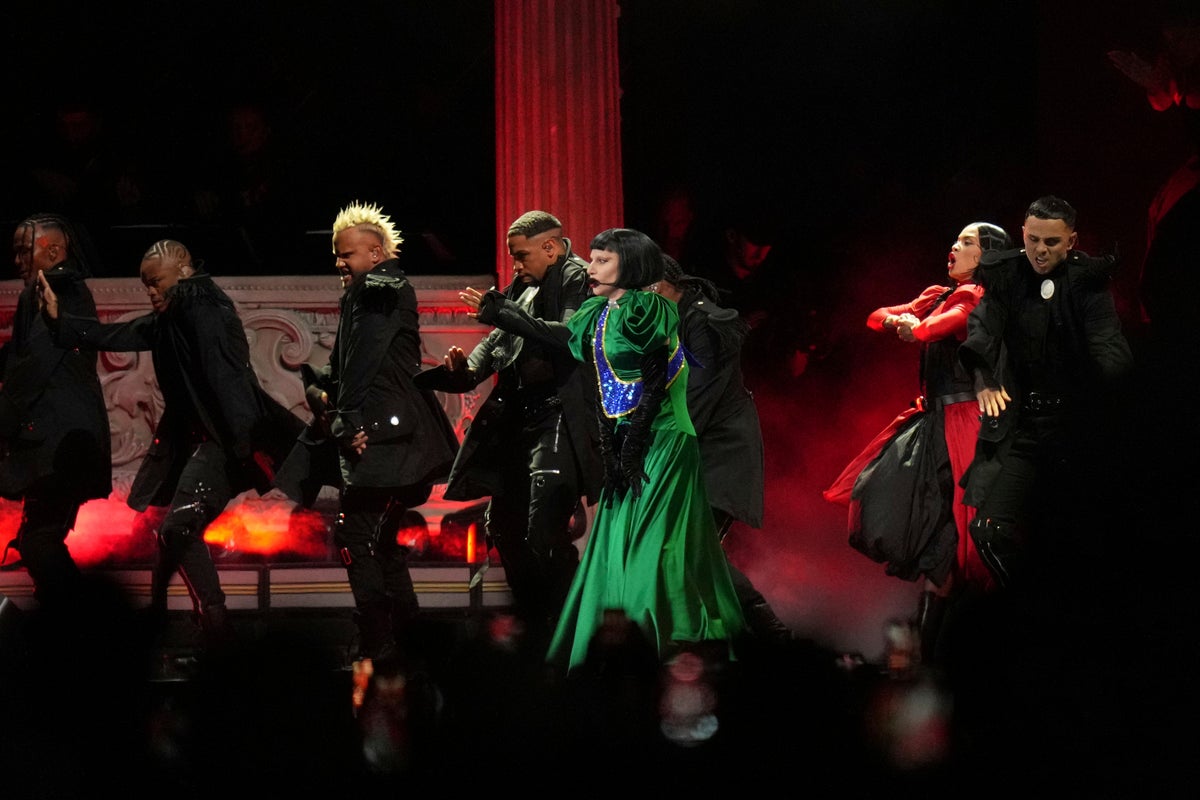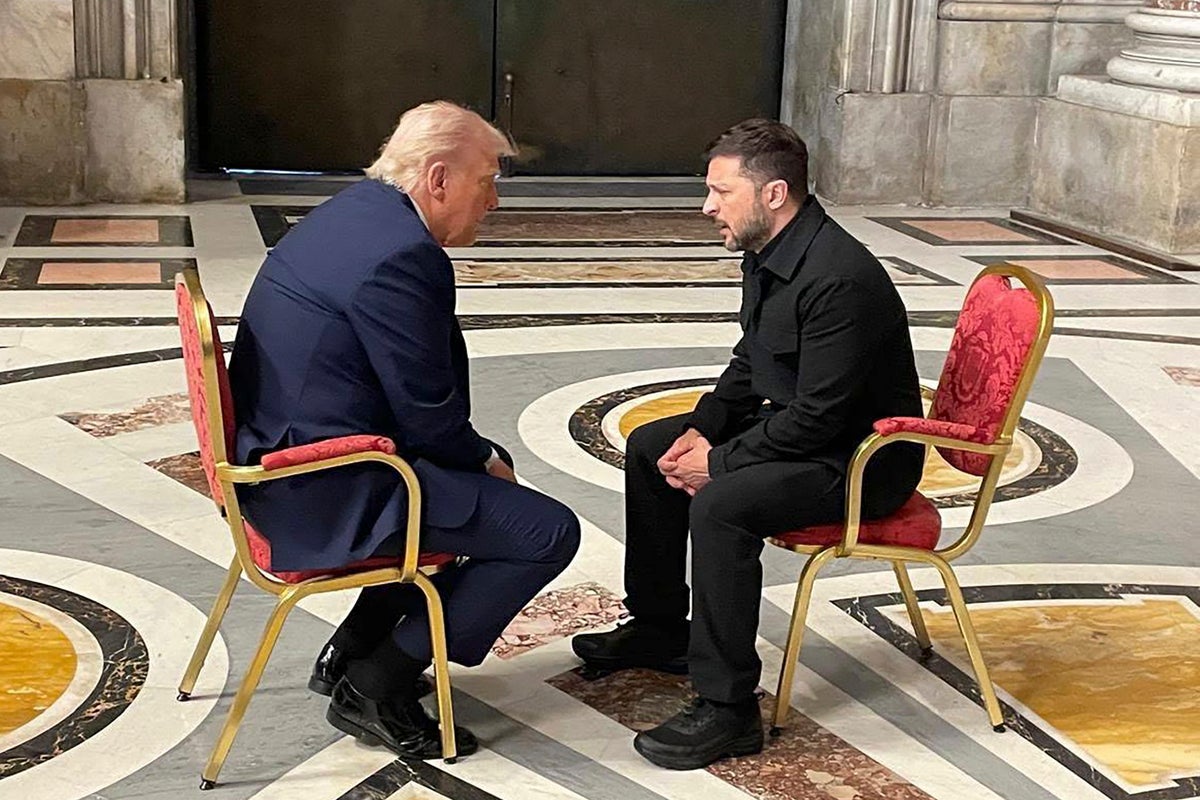ARTICLE AD BOX
The fate of three former Memphis police officers charged in the beating of Tyre Nichols was in the hands of 12 people who do not live in the city as jury deliberations began Tuesday in the 29-year-old Black man’s death.
The jury began deliberating after a prosecutor and defense lawyers presented closing arguments in the trial of Tadarrius Bean, Demetrius Haley and Justin Smith, who have pleaded not guilty to state charges including second-degree murder. They already face the possibility of years in prison after they were convicted of federal charges last year.
Nichols fled a Jan. 7, 2023, traffic stop after he was yanked out of his car, pepper-sprayed and hit with a Taser. Five officers who are also Black caught up with him and punched, kicked and hit Nichols with a police baton, struggling to handcuff him as he called out for his mother near his home.
Footage of the beating captured by a police pole camera also showed the officers milling about, talking and laughing as Nichols struggled. His death led to nationwide protests, calls for police reforms in the U.S., and intense scrutiny of police in Memphis, a majority-Black city.
The jury for the state trial was chosen in Hamilton County, which includes Chattanooga, after Judge James Jones Jr. ordered the case be heard from people outside of Shelby County, which includes Memphis. Defense lawyers for the officers had argued that intense publicity made seating a fair jury difficult.
The officers are charged with second-degree murder, aggravated assault, aggravated kidnapping, official misconduct and official oppression. Prosecutors have argued that the officers used excessive force in trying to handcuff Nichols. The officers also had a duty to intervene and stop the beating and tell medical personnel that Nichols had been struck in the head, but they failed to do so, prosecutors said.
Two of the five ex-officers have already agreed to plead guilty
Former Memphis officers Desmond Mills Jr. and Emmitt Martin also were charged in the case. They have agreed to plead guilty to the state charges and are not standing trial. They already pleaded guilty in federal court, where sentencing for all five officers is pending.
Defense attorneys have sought to chip away at accusations that the officers used unnecessary force to subdue Nichols. They have argued that Nichols was actively resisting arrest by running away and failing to give his hands to officers so that he could be handcuffed. They also say their use of force complied with police department policies.
Mills testified that he regrets his failure to stop the beating, which led to Nichols’ death three days later from blunt-force trauma. Dr. Marco Ross, the medical examiner who performed the autopsy, testified that Nichols suffered tears and bleeding in the brain.
As Nichols struggled with Bean and Smith, who were holding him on the ground, Mills tried to pepper-spray Nichols, but he ended up spraying himself, he said.
After stepping away to try to recover, Mills then walked up to Nichols and hit his arm three times with a police baton. Mills told prosecutor Paul Hagerman that he hit Nichols with the baton because he was angry over the pepper spray. Defense attorneys have said the the officer who acted with the most violence was Martin, who kicked and punched Nichols several times in the head but is not standing trial.
Defense attorneys argue that Nichols was resisting arrest
Mills acknowledged on the stand that he had a duty to intervene to stop the beating, but didn’t.
But Mills also said Nichols was actively resisting arrest and not complying with orders to present his hands to be cuffed.
During the trial, defense attorney John Keith Perry asked Mills if he would have struck Nichols with the baton if Nichols had just put his hands behind his back. Mills said no.
Perry also asked Mills if he thought Bean and Smith were holding Nichols so Martin could hit Nichols. Mills said he didn’t think that was the case.
Martin Zummach, Smith’s lawyer, noted in closing arguments that credit and debit cards that did not belong to Nichols were found in his car when it was searched after the beating and said it was likely why Nichols ran from the traffic stop. Defense lawyers have argued that the fatal beating would not have taken place if Nichols had just allowed himself to be handcuffed.
“This is Emmitt Martin’s and Tyre Nichols’ doing,” Zummach said.
Mills acknowledged that the officers were afraid and exhausted, but said some of the methods used on Nichols complied with police department policies, including using wrist locks and hitting with a baton.
Mills admitted Nichols never punched, kicked or got on top of any officers.
The five officers were part of a crime suppression team called the Scorpion Unit that was disbanded after Nichols' death. The team targeted drugs, illegal guns and violent offenders to amass arrests, while sometimes using force against unarmed people
The trial comes months after the U.S. Justice Department said in December that a 17-month investigation found that the Memphis Police Department uses excessive force and discriminates against Black people.









 English (US) ·
English (US) ·